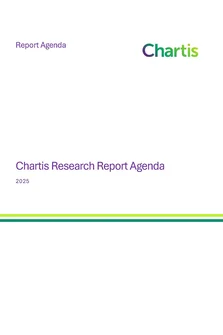<p>The impact of the financial crisis on banks has been twofold, both generally, and specifically with regard to capital management. Firstly, banks have been forced to re-examine the way they do business and their underlying assumptions about how to measure risk, performance, and success. Secondly, regulators have reacted to the crisis with new sets of regulations that will change the priorities of banks.</p>
<p>The internal repercussions of the financial crisis in banks and the implementation of the Basel III and Dodd-Frank regulations are sure to have a substantial effect on the way that financial institutions manage their capital.</p>
<p>Banks want to be able to manage their capital more efficiently and comply with regulations at minimal cost. Doing so is likely to mean that banks must alter the way that their capital management, capital planning, and risk functions work, both separately and as aligned parts of an integrated system. Banks may have to change the way they view these functions and their priorities. Banks will also seek to rely less on traditional performance based measurements, and to move towards risk-adjusted performance metrics. These changes may oblige banks to invest to allow the re-alignment of functions and to support the technology that may be essential to meet their new goals.</p>
<p>While change is certain, the nature of that change is not. At present, banks are unsure as to which path to take, and technology vendors have no firm indications of the requirements of their customers. To shed some light on the changes in capital planning in the financial sector, SunGard commissioned Chartis to compile a report on approaches to capital planning. This research was carried out independently by Chartis. It involved a survey of professionals involved in capital management, followed up by in-depth interviews and face-to-face meetings with key practitioners, and discussions with industry experts from SunGard’s Ambit Risk and Performance Management business. The research was carried out to discover what factors were influencing changes in this sphere, what measures banks are currently taking to change their approach to capital, what challenges banks face, and what solutions are available to banks.</p>
<p>The research showed that a number of significant changes are taking hold in the area of capital management, but that there are a number of major obstacles to the success of banks’ plans. Key findings from the research include:<br />
• The role of the capital planning function is growing in importance within many banks;<br />
• Capital planning needs to become more dynamic and strategic and must deliver updates at a higher frequency;<br />
• Regulations are having the greatest impact on banks and regulatory capital is the main constraint for capital planning;<br />
• Regulations, however, are having unintended consequences – more compliance is leading to less risk management;<br />
• Despite the growing recognition of the importance of capital planning, many banks do not have clear structures or plans in place to improve or invest in capital planning;<br />
• Inadequate data management systems are a major obstacle to the implementation of changes to the capital planning function.</p>
<p>The results of the research show that, while banks have acknowledged the need for change, they are yet to develop detailed plans for implementation, or to tackle obstacles. However, this is not an area banks can afford to neglect. Basel III, the Dodd-Frank Act, and other domestic post-crisis regulations are not going away and regulation will remain a major constraint on banks and will keep the cost of capital high. To adjust to the postcrisis financial environment, banks must adapt their capital management and capital planning programs not only to comply with regulations, but to improve the efficiency of their use of capital.</p>
Only users who have a paid subscription or are part of a corporate subscription are able to print or copy content.
To access these options, along with all other subscription benefits, please contact info@risk.net or view our subscription options here: http://subscriptions.risk.net/subscribe
You are currently unable to print this content. Please contact info@chartis-research.com to find out more.
You are currently unable to copy this content. Please contact info@chartis-research.com to find out more.
Copyright Infopro Digital Limited. All rights reserved.
As outlined in our terms and conditions, https://www.infopro-digital.com/terms-and-conditions/subscriptions/ (point 2.4), printing is limited to a single copy.
If you would like to purchase additional rights please email info@chartis-research.com
Copyright Infopro Digital Limited. All rights reserved.
You may share this content using our article tools. As outlined in our terms and conditions, https://www.infopro-digital.com/terms-and-conditions/subscriptions/ (clause 2.4), an Authorised User may only make one copy of the materials for their own personal use. You must also comply with the restrictions in clause 2.5.
If you would like to purchase additional rights please email info@chartis-research.com


